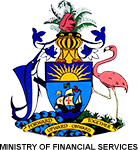Caribbean Countries Set to Reduce Trade Hurdles
23 Oct 2018

OECS Trade Officials Meet with UNCTAD
Senior trade officials from the Organisation of Eastern Caribbean States (OECS) have met with UNCTAD experts to discuss a new drive to help them improve the efficiency of their cross-border trade.
The officials met on 10 October at the OECS’ Geneva diplomatic office, which represents the grouping at the United Nations’ European hub.
The goal of the capacity building programme, set to start in November, is to help six OECS members implement commitments made under the World Trade Organization’s Trade Facilitation Agreement, which came into force in February 2017.
The objective of the WTO agreement is to reduce costs, increase access to information and improve clearance times for importers and exporters – given that bureaucratic delays and “red tape” are a drag on cross-border trade. It contains provisions for expediting the movement, release and clearance of goods, including goods in transit. It also sets out measures for effective cooperation between customs and other appropriate authorities on trade facilitation and customs compliance issues.
In addition, it focuses on technical assistance and capacity building, which are key concerns for developing countries.
One component of the WTO agreement is the requirement to establish National Trade Facilitation Committees, which are responsible for coordinating its implementation, and this is where UNCTAD comes into play.
Empowering trade
Under the terms of the UNCTAD Empowerment Programme for National Trade Facilitation Committees, the UN trade and development body trains and spurs cooperation among national representatives from both the public and the private sectors.
The Empowerment Programme involves the six OECS members that are in the WTO: Antigua and Barbuda, Dominica, Grenada, St. Kitts and Nevis, St. Lucia, and St. Vincent and the Grenadines.
“UNCTAD is committed to support OECS countries in the implementation of trade facilitation reforms. Under the guidance of UNCTAD in 2012-2013, these six Small Island Developing States drafted a National Trade Facilitation Implementation Plan. I am happy to note that this comprehensive plan provided the baseline for implementing the WTO Trade Facilitation Agreement, and identified key actions to ensure compliance,” said Shamika N. Sirimanne, director of UNCTAD’s technology and logistics division.
“UNCTAD support to the OECS countries is thus renewed under the framework of the Empowerment Programme for National Trade Facilitation Committees.”
The OECS has a total of 10 members. Those that are not part of the WTO in their own right are Anguilla, the British Virgin Islands, Martinique and Montserrat.
A boost from the UK
The training package, with several rounds spread over 12 months, seeks to assist OECS members in implementing trade facilitation reforms in a coordinated manner.
It is funded by the United Kingdom’s customs agency – Her Majesty’s Revenue and Customs (HMRC) – and will be delivered by UNCTAD with coordinating support from the OECS Commission.
The OECS training initiative is part of a wide programme involving UNCTAD, HMRC and the World Customs Organization that was launched in 2015.
Encouraged by the success of the past three years, the United Kingdom recently extended its support to UNCTAD until 2020 and has granted the Geneva-based UN trade and development body total funding of GBP 1 million. The sum, announced in August, represents an increase of over 300% compared to its previous contribution.
To date, the United Kingdom’s support through the Empowerment Programme had focused on Ghana, Liberia, Sudan and Zimbabwe, and is being extended to other countries in Southern Africa such as Botswana, Malawi, Namibia, and Zambia. Overall, more than 30 developing countries have benefitted from UNCTAD’s programme.
OECS members have identified the need to improve the business environment by undertaking reforms that will lead to greater efficiency and cost savings for both companies and the consumer at both national and regional levels. One critical element of these reforms is to decrease clearance times during the import and export process.
“The Empowerment Programme can be a useful tool to strengthen the functioning of Trade Facilitation Committees and simplify foreign trade procedures,” said Matthan Walters, Dominica’s director of trade. He also underscored the importance of the programme responding to the needs to each OECS member.
Heavy turnover
Small nations often face a problem of turnover in their far-from-sizeable civil services, as well as in the private sector, and National Trade Facilitation Committees are especially vulnerable to the high rotation of their members.
The Empowerment Programme equips the committees with a knowledge transfer strategy, ensuring that the skills learned by the programme participants are transferred to any new member. This is key to the committee’s sustainability.
The OECS training programme will complement the efforts of UNCTAD’s Automated System for Customs Data (ASYCUDA), which is also deployed in the region. ASYCUDA is an integrated customs management system for international trade and transport operations in a modern automated environment.
OECS members have received technical assistance in implementing ASYCUDA since the 1990s
The introduction of computerization through ASYCUDA has stimulated reform of many outdated practices and procedures, by spurring the implementation of a common external tariff, the use of standardized codes and the introduction of what’s known as the Single Administrative Document.
These trade facilitation measures have helped OECS members’ customs administrations to achieve a speedier clearance of imports and exports, to increase revenue and to gather timely and accurate data. After a series of reform cycles, all OECS members offer an electronic environment for the processing and clearance of goods, capable of receiving advance cargo information and employing a risk-based compliance management approach thanks to ASYCUDA.
Source: United Nations Conference on Trade and Development

